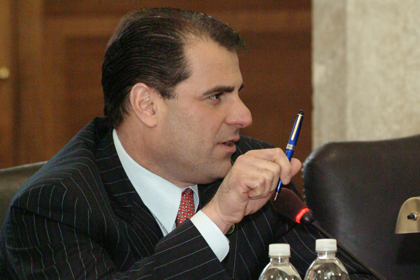
Says Greater Transparency Will Help Achieve Shared Cost Savings for Members, State & Local Government
TRENTON – Seeking information on the use of third party administrators to manage the health benefits for public workers, Senator Paul Sarlo wrote to State Treasurer Elizabeth Muoio to get an explanation on the policies and practices to help determine if savings can be captured to reduce costs for members and for government employers. The TPA’s administer the State Health Benefits Plan and the School Employees Health Benefit Plan by paying claims and negotiating charges with health care providers.
At today’s budget hearing by the Senate Budget and Appropriations Committee, Acting Commissioner of Banking and Insurance Marlene Caride confirmed that oversight of third party administrators for public sector health plans is the responsibility of the Treasury Department.
Senator Sarlo believes that greater transparency and accountability on the part of the third party administrators will yield savings for state and local government and drive premiums downward. Senator Sarlo’s letter to Treasurer Muoio seeks information to identify the cost drivers, to find ways to capture savings and to ensure that savings are shared with those who pay for the care and benefits.
“Greater transparency on the operations of these third-party administrators will help identify cost savings that should be passed on to the state,” said Senator Sarlo. “There needs to be an accounting of the savings that insurance companies retain as fees and commissions. We must ensure that the majority of these savings flow to the state as they should.”
The plans cover more than 600,000 current employees and retirees, including state, local and school members, costing state and local government and school districts approximately $6 billion in 2016, according to the New Jersey Treasurer’s Office. The contracts for SHBP and SEHBP are set to expire in June. Senator Sarlo said that the need for more accountability should be addressed before the next contract for an administrator is awarded.
“Every year, doctors and other health care providers complain of decreasing reimbursements,” said Senator Sarlo. “At the same time, health care consumers complain of rising premiums and increasing costs. The obvious question that needs to be asked is: Where is all the money going?”

